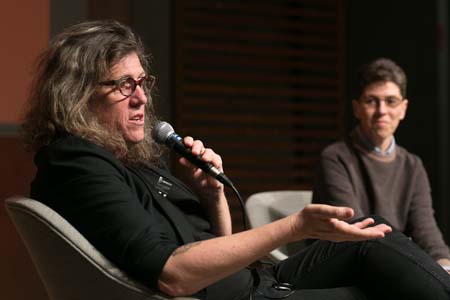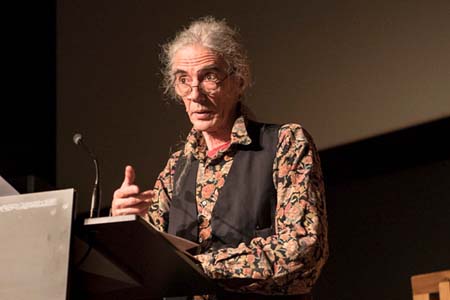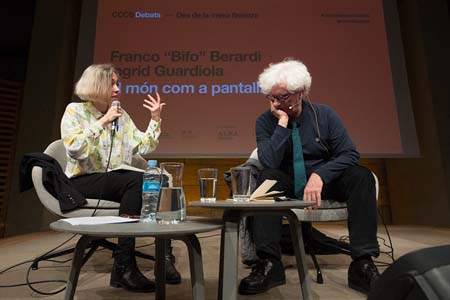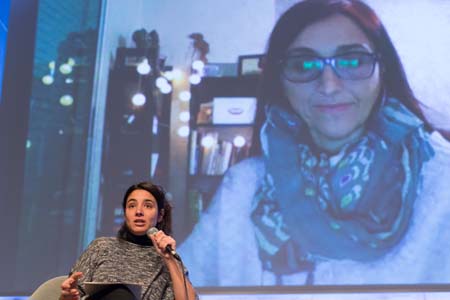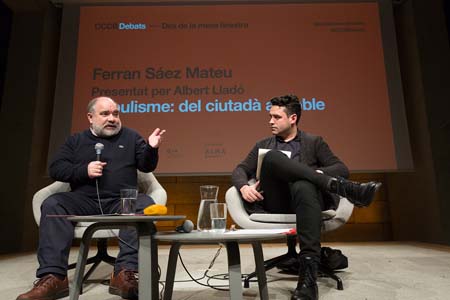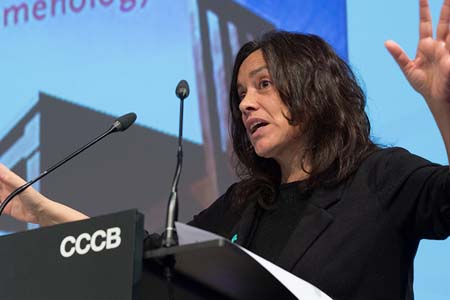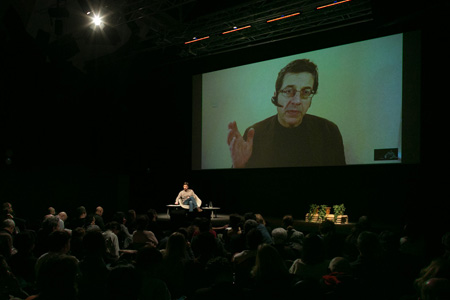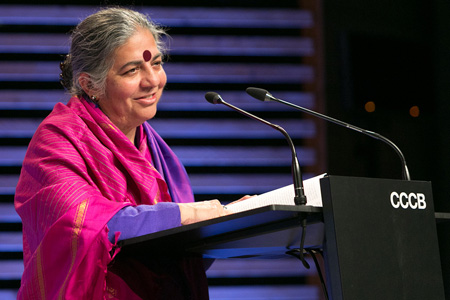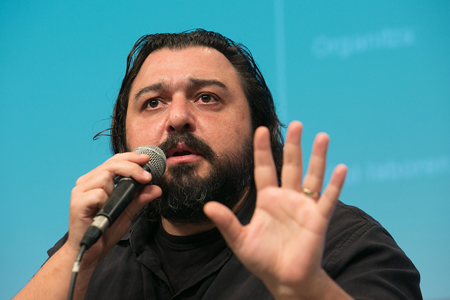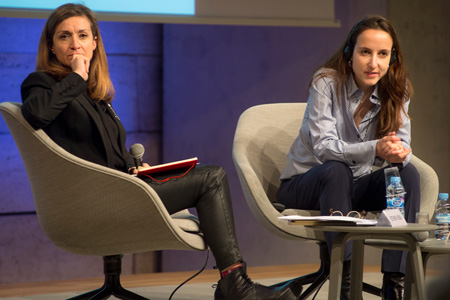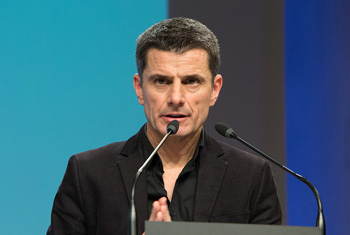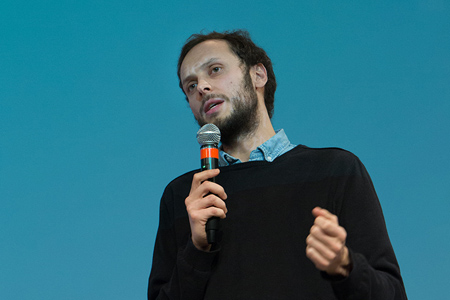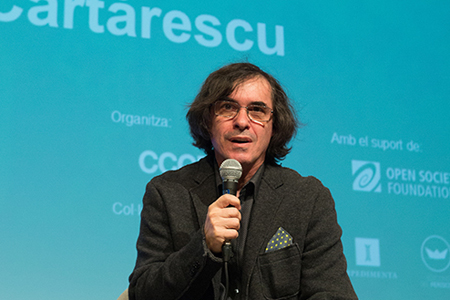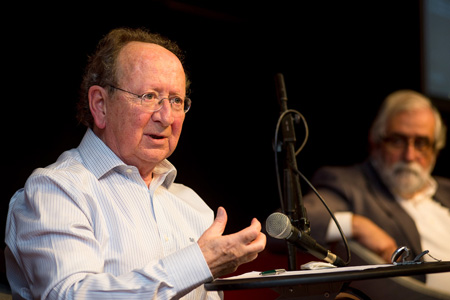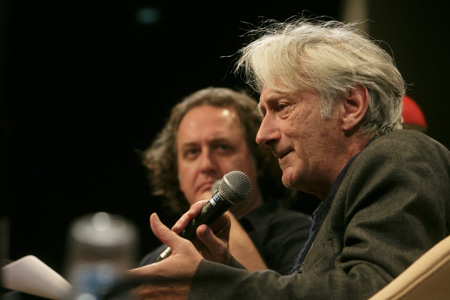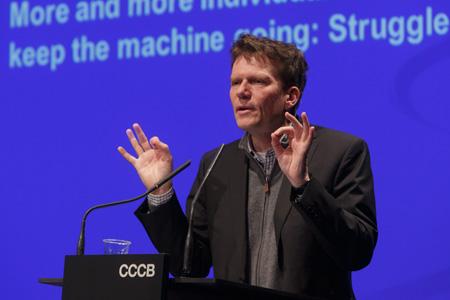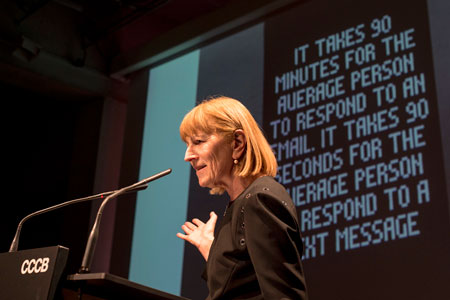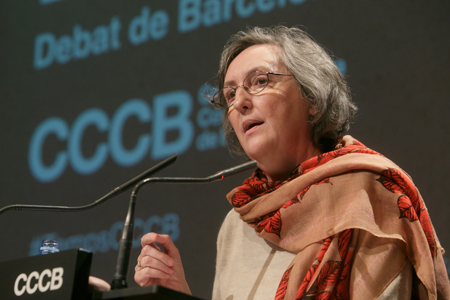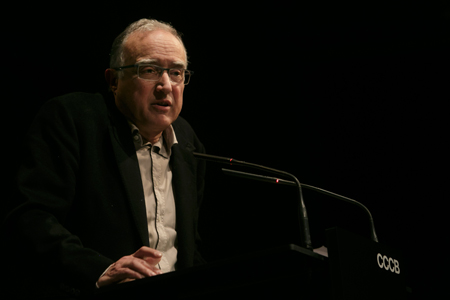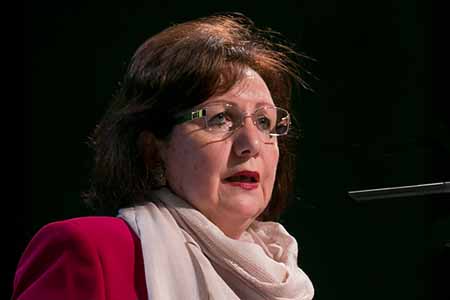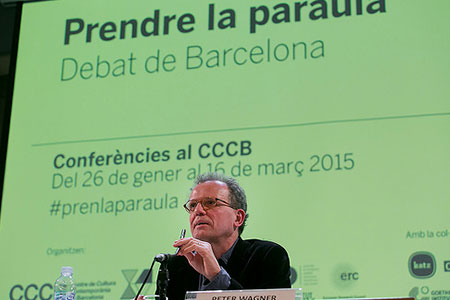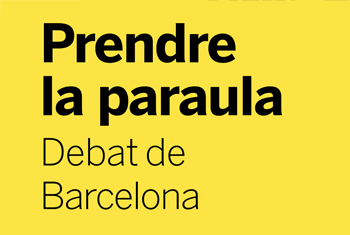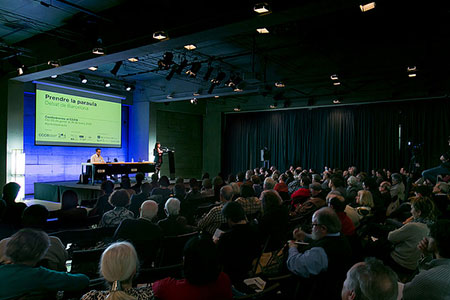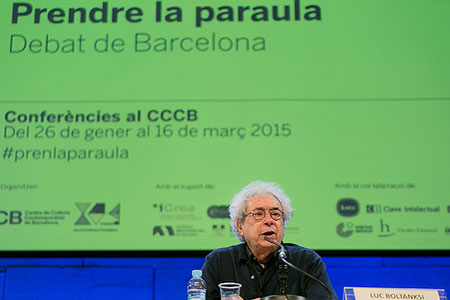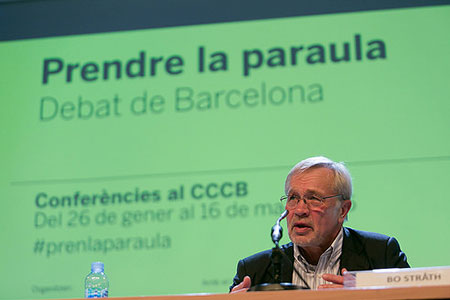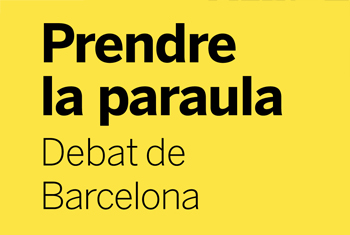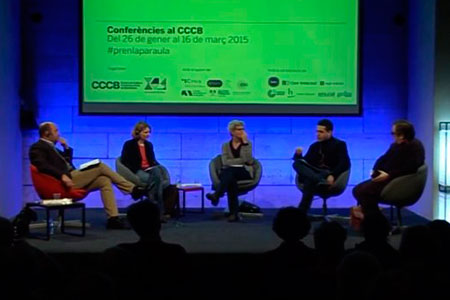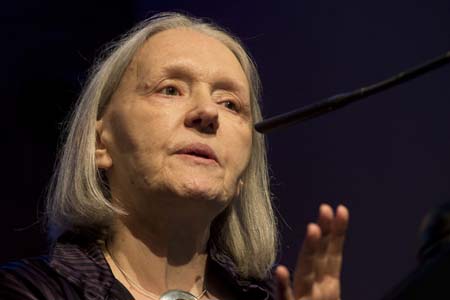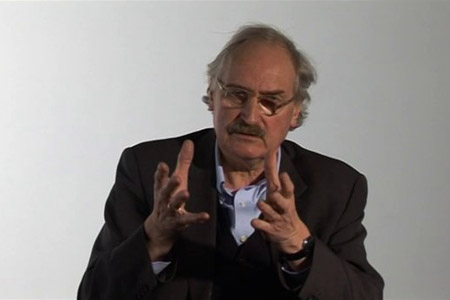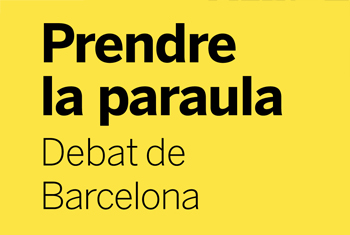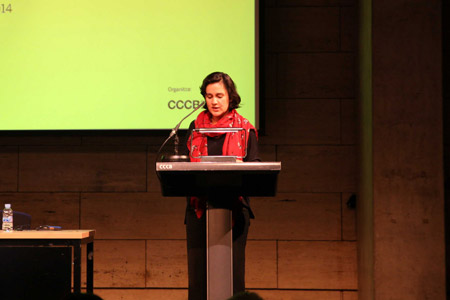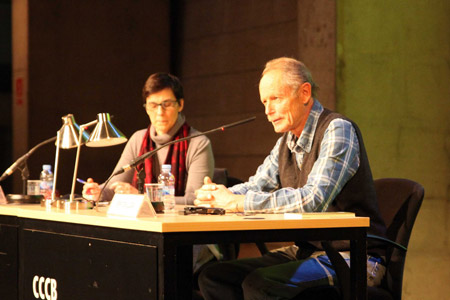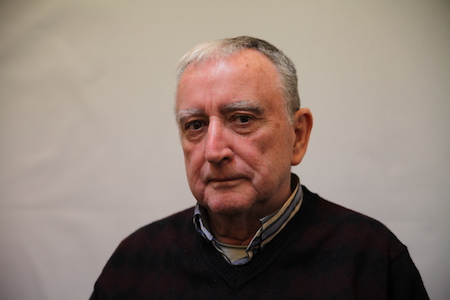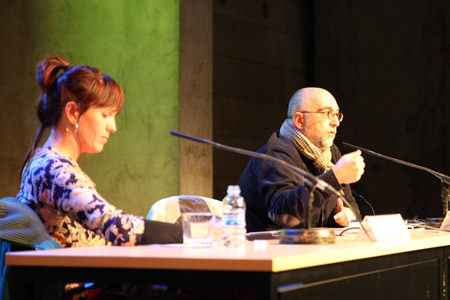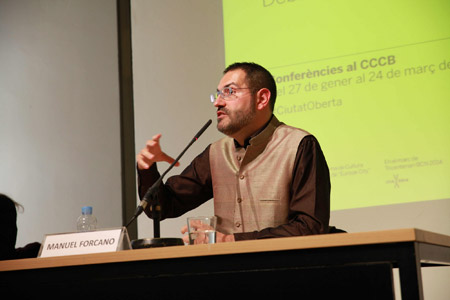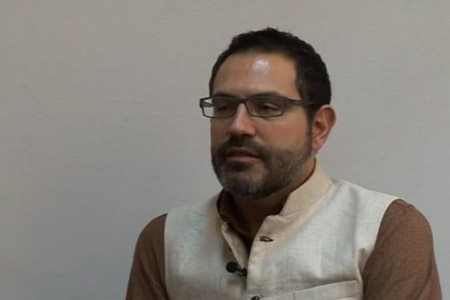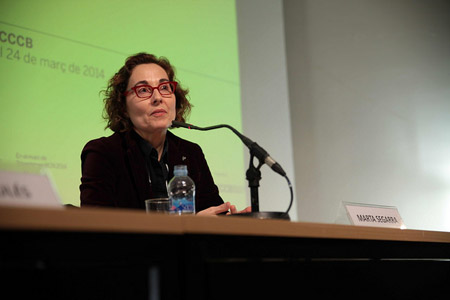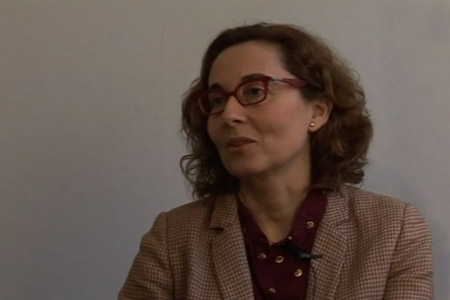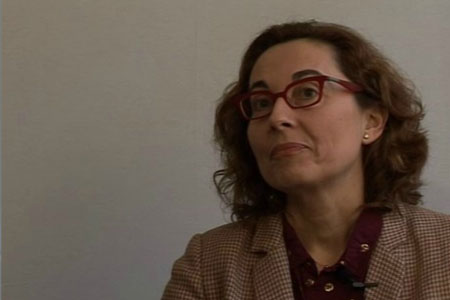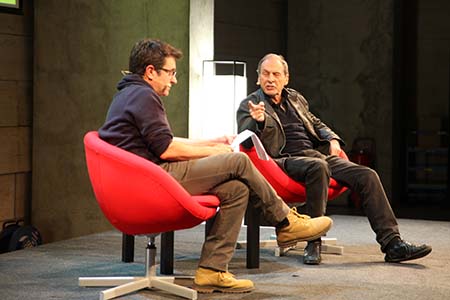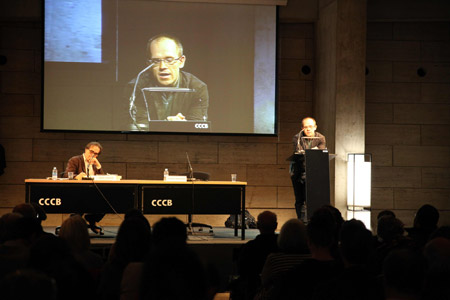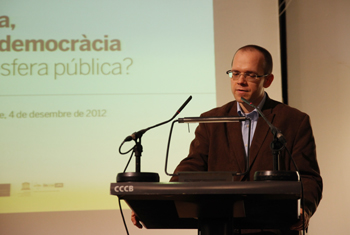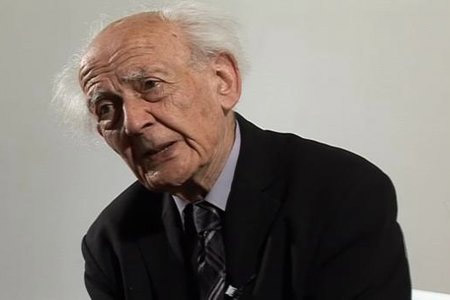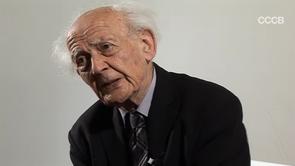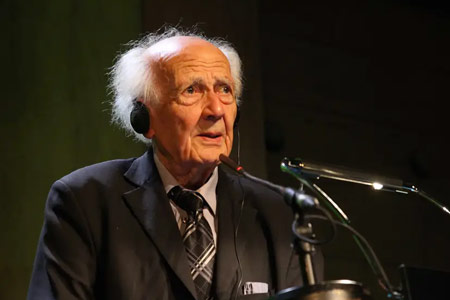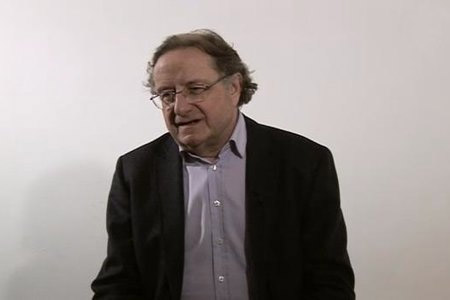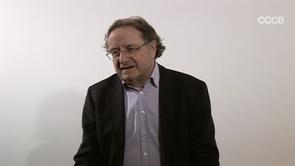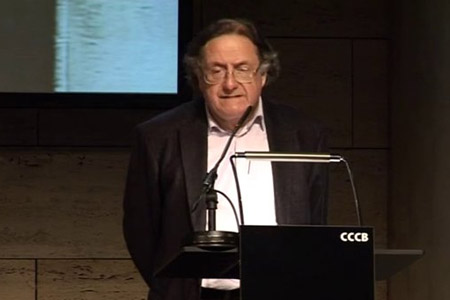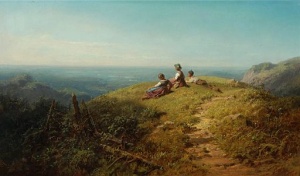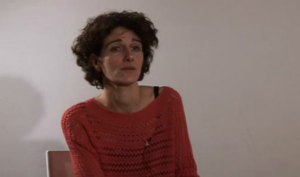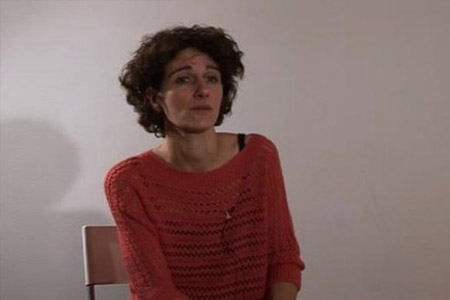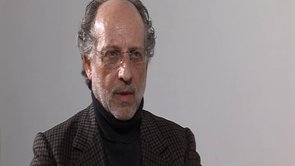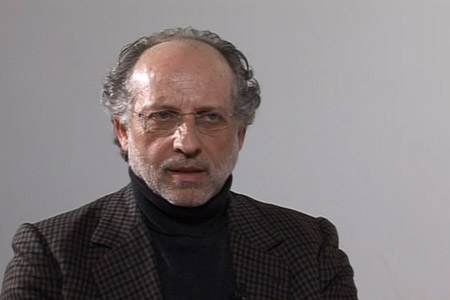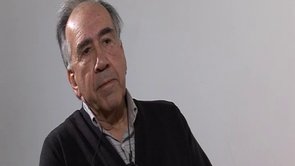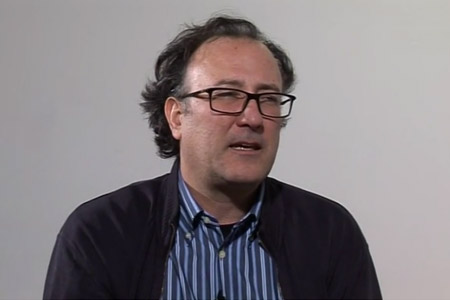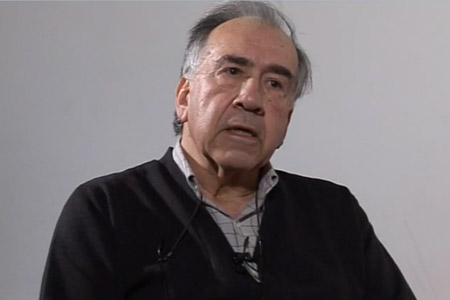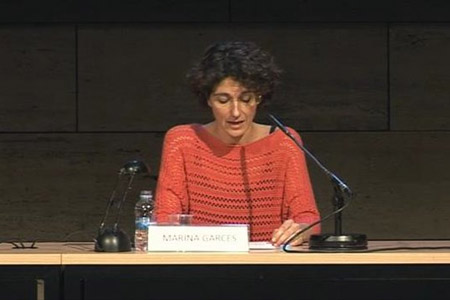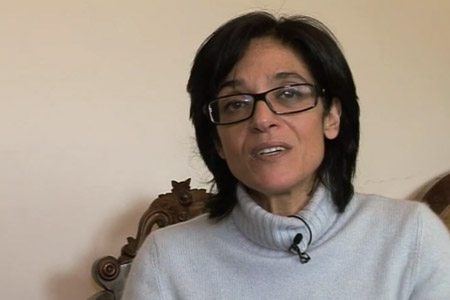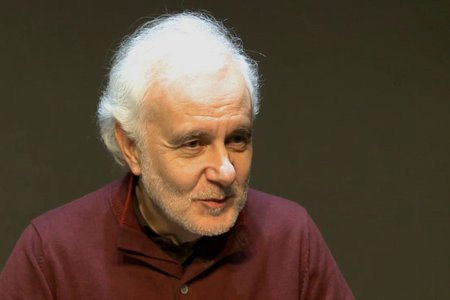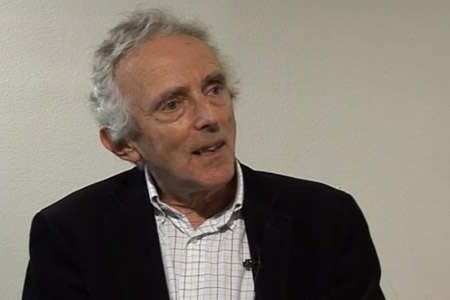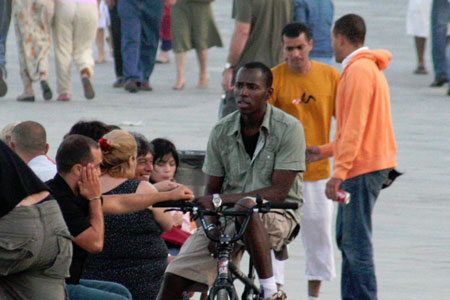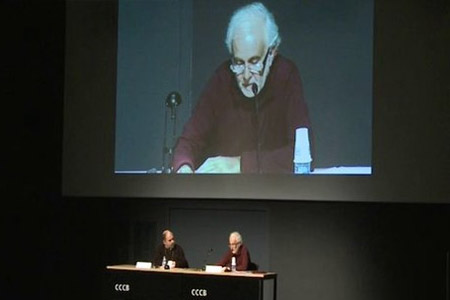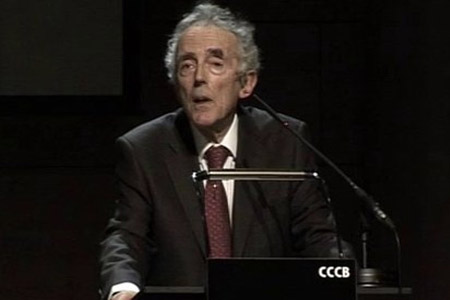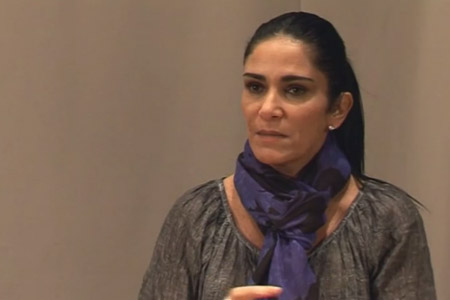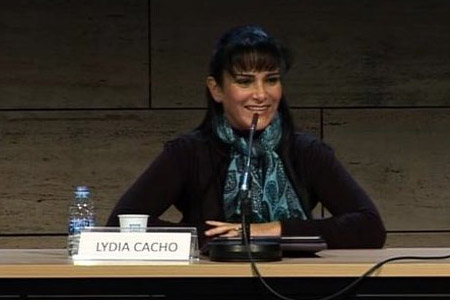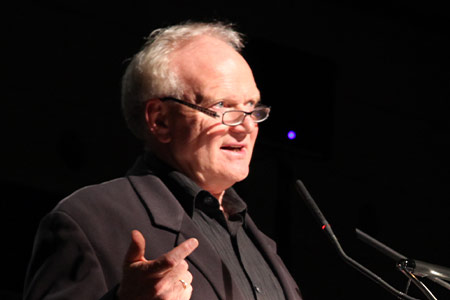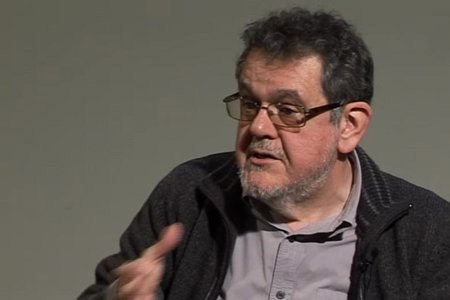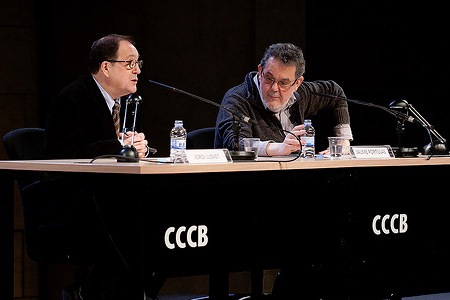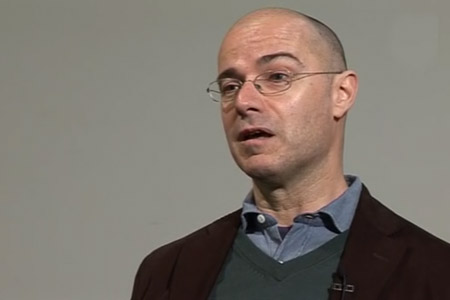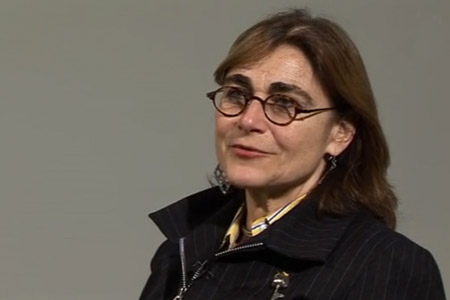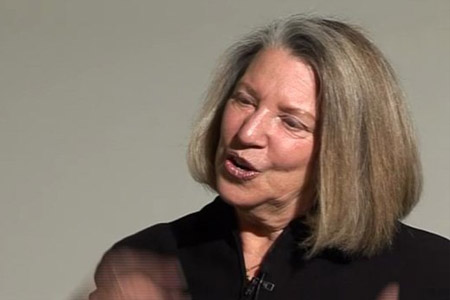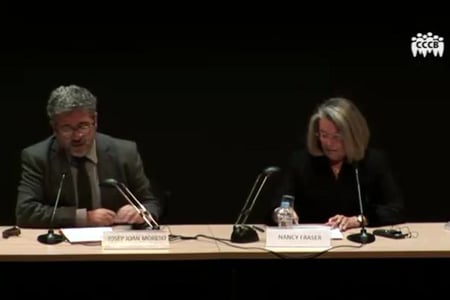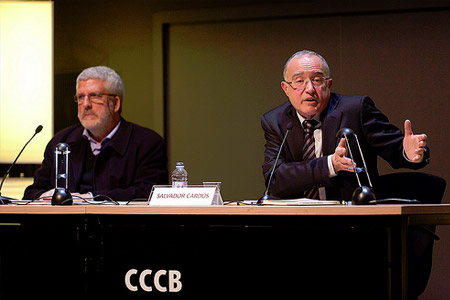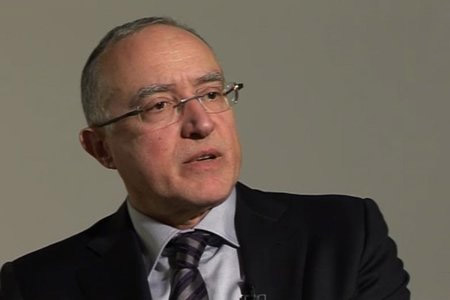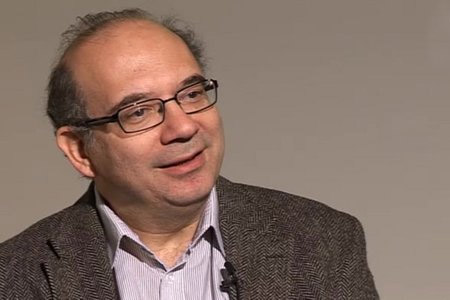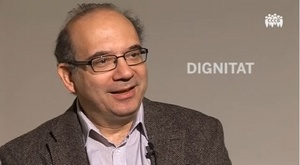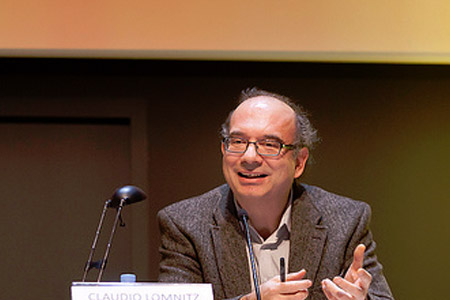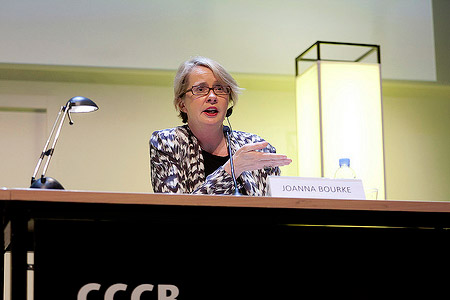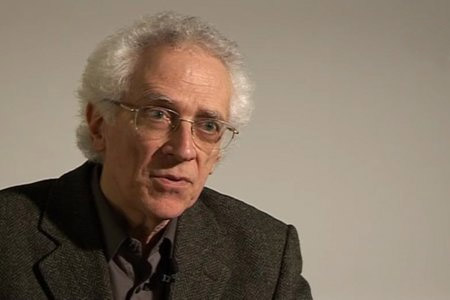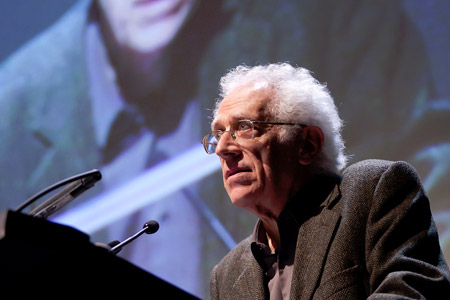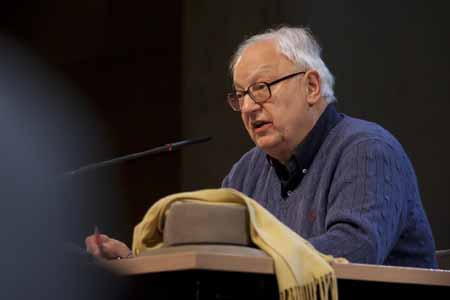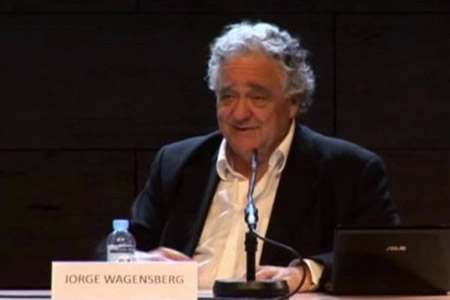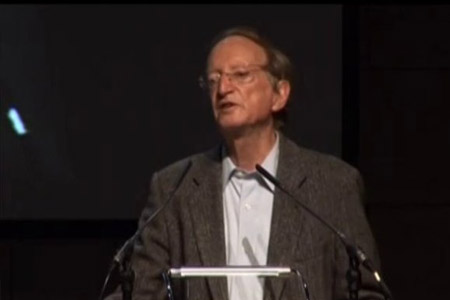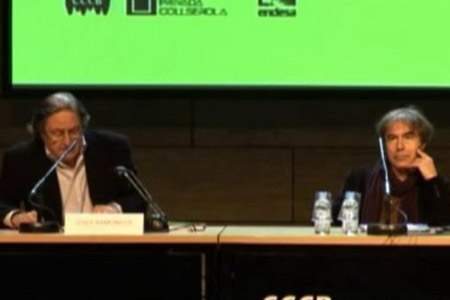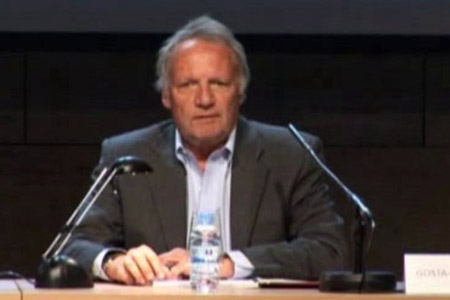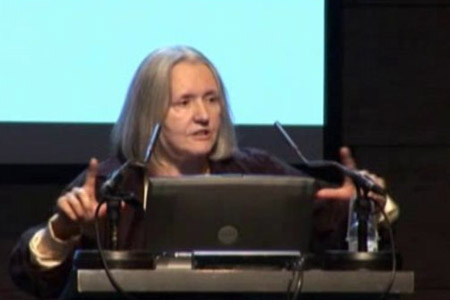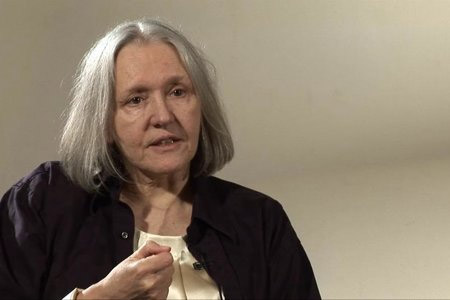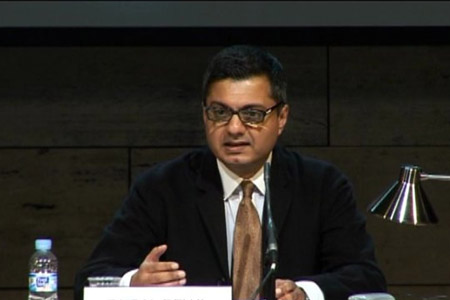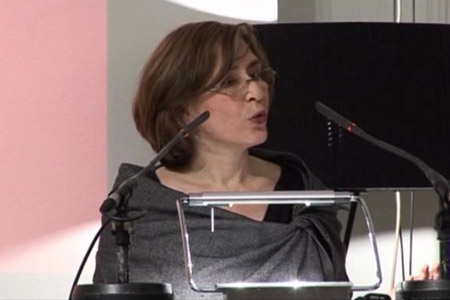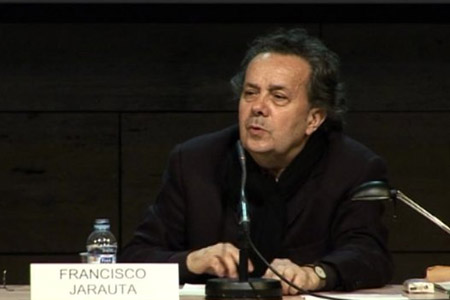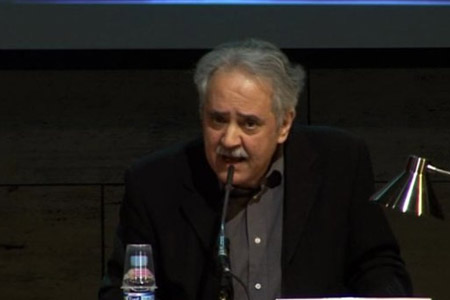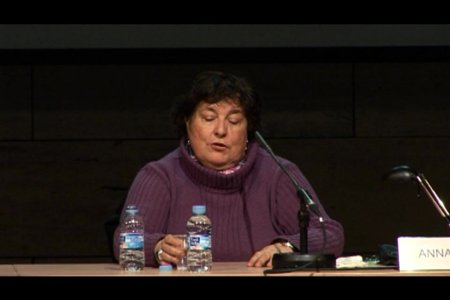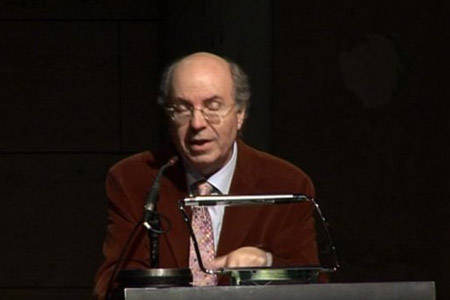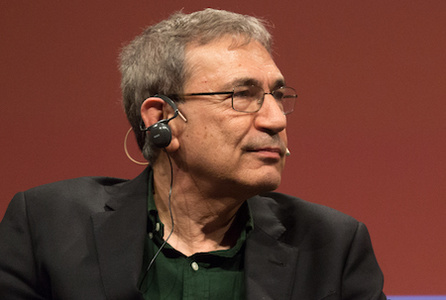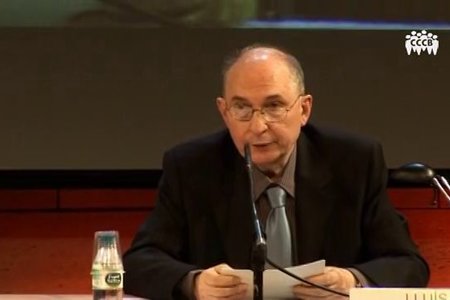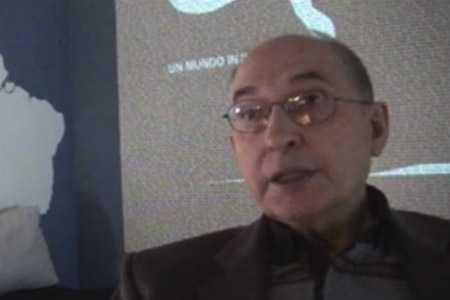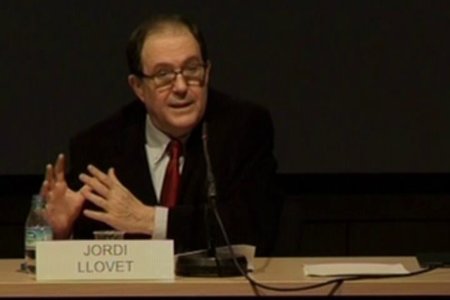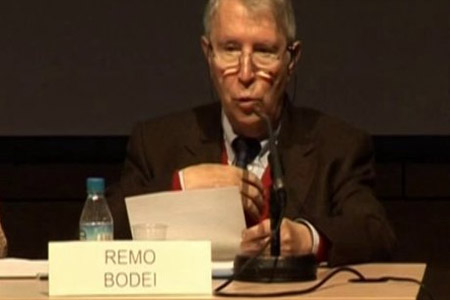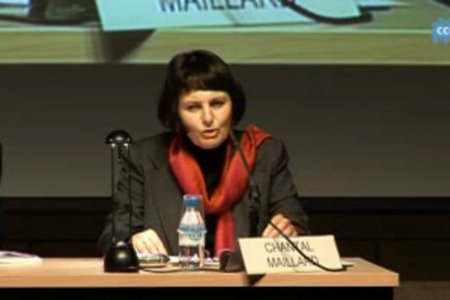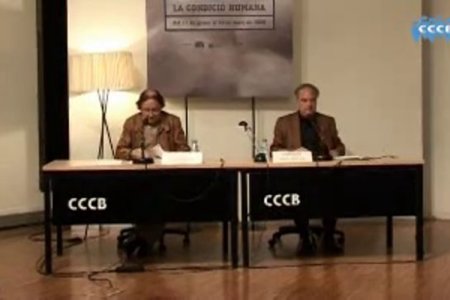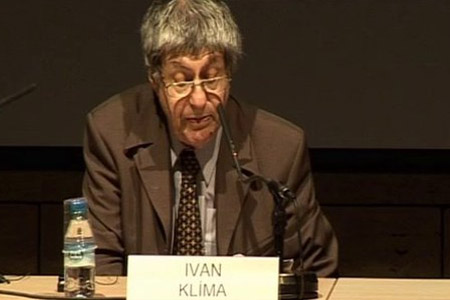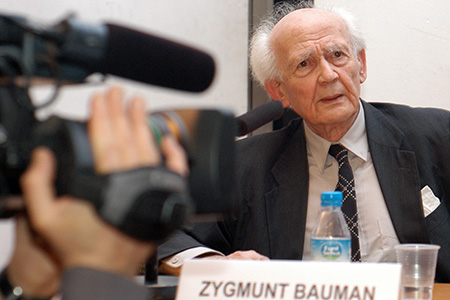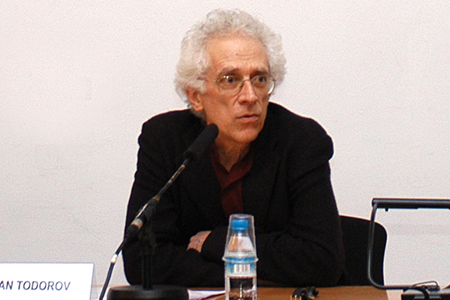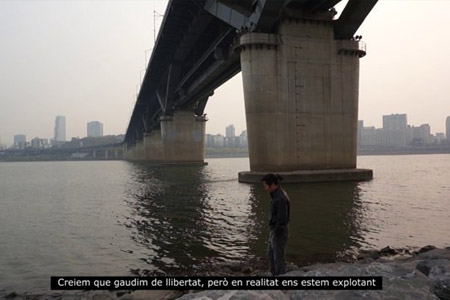The Barcelona Debate
Susan Stryker
The Transgender Lens
Susan Stryker, activist and historian of the struggles for the rights of the LGBTI collective, explores the concept of “transgender”, not as an identity but, rather, to understand it as a lens that reveals self and world in new ways.
Enric Casasses
They’re Knocking at the Window
Enric Casasses ponders the possibilities held out by poetry for looking at reality in a particular way. Casasses, poet, rhapsode, playwright, and translator, has cultivated the word in every possible domain. With such a multifaceted creator, words cease to be merely an instrument of communication ...
Helena Maleno
On the Other Side of the Wall
Journalist and human-rights defender Helena Maleno focuses on how European policies cause deaths and criminalise the defence of human rights along Spain’s southern border. The measures that the government and state institutions are taking with respect to this problem are preventing the ...
Populism: From Citizen to the People
Lecture by Ferran Sáez Mateu
What is populism and why is it now booming? Philosopher Ferran Sáez explains that the concept, which already existed at the start of the 20th century, is now back because of the crisis in political representativeness and the immiseration of the middle classes. It is a concept based on ...
Sara Ahmed
On Complaint
Sara Ahmed, researcher and writer specialising in feminism, queer theory and postcolonial criticism, talks about the difficulties involved in presenting a complaint in matters of harassment at universities as a result of institutional bullying. She advocates victims uniting in order to challenge a body that frequently tries to discourage them from complaining and convince them of the damaging effects it may have for them, while those responsible band together and support each other to defend their common interests. ...
Vandana Shiva
Seeding Freedom: Humanity at an Evolutionary Crossroads
Vandana Shiva, activist and ecofeminist thinker talks about the role humanity must accept in a future conditioned by the ecological, economic, political and social effects of the present climate crisis. Vandana Shiva argues that today’s climate crisis faces humanity with a serious situation ...
Hakan Günday
The Cost of Fear
Hakan Günday is one of the most celebrated young novelists in today’s Turkish literary scene. His novel Daha! deals with the human trafficking in Europe and illuminates the brutal conditions of migrants trying to access the continent through Turkey.
Pedro Olalla
Democracy's Old Future
Europe is ageing demographically. Is it also ageing politically? Ideologically? Is democracy, as an in fieri project, compatible with a form of social ageing believed by many to be synonymous with conservatism, dependency and abdication? Are these really attributes of ageing? ...
Srećko Horvat
War or utopia
Europe is on the verge of a tectonic shift. Which are its possible futures? Will it resemble the horrors of the past? Or can a renewed utopian vision light the way forward? In this lecture, writer and political activist Srećko Horvat offers us a trip through Europe's possible futures.
Mircea Cărtărescu
Europe in My Mind
The work of the Romanian writer Mircea Cărtărescu portrays the diversity of contemporary European life, going beyond the idea of the continent as a project or territory with borders and limits. For Cărtărescu, Europe's meaning lies in the work of Kafka, Proust, Grass or Cervantes.
Joan-Francesc Mira: “The Mediterranean isn’t a zone of harmony. It’s a zone of conflict.”
Anna Punsoda
I tell Joan-Francesc Mira that the 2017 “Barcelona Debate” will discuss, among other matters, whether there is a relationship between the ageing of the European population and the ageing of the European project. He gives me a severe look and says that the correlation might work ...
Patrick Deville
Literature, a Journey in Time and Space
From one continent to another, from one century to another, the writer Patrick Deville brings about constant shifts in time and space in his literature.
Hartmut Rosa
Accelerated Lives
The German sociologist Hartmut Rosa gives a lecture about “social acceleration” which, in his view, is the cause of the four great crises we presently face: the ecological crisis, the financial crisis, the crisis of political representation and high levels of dissatisfaction and exhaustion.
Marina Garcés
Unfinishing the World
Living the way we are living, we are making ourselves extinct. All of us. How does this situation change our human condition and our position as political subjects? And what, then, is the power of thought? We have gone from being constructors of the world to its destroyers. Beyond apocalyptic ...
Judy Wajcman
Time in the Digital Age
Sociologist Judy Wajcman reflects on how digital culture has changed the concept of time while simultaneously changing us.
Menchu Gutiérrez
The Clearings of Time
Literature and poetry embrace many experiences from places that are far from the official time of watches, mythical spaces where time is immobilised, closed spaces like caskets guarding the hours. Physics and mysticism also share many metaphors on how to free oneself from temporality. The writer Menchu ...
Salvador Cardús
The clock
From the earliest timekeeping devices through to today’s smartwatches, the clock has become a key instrument in the service of social organisation and an expression of its increasing complexity. How might it be turned into a tool that fosters time for free personal use and for humanising ...
Seyla Benhabib
Wield the Word. Citizenship
Seyla Benhabib is a leading philosopher specialising in European social and political thought, feminist theory and the history of modern political theory. She is one of the most authoritative voices in the philosophical debate on difference. In this lecture she reflects on the instability of ...
Peter Wagner: “The mechanism of domination and resistance to domination is what brought about progress”
Centre Documentació i Debat
Barcelona Debate 2015 is about to end with the lecture that will be given by the sociologist Peter Wagner, who will situate the concepts of “progress” and “modernity” within the framework of today’s political vocabulary and propose new readings and perspectives in order to update their meanings. In your lecture on 9 March you will [...]
Interview with Bo Stråth
Wield the Word.The Barcelona Debate 2015
Interview to Bo Stråth, Emeritus Professor of Nordic, European and World History at the University of Helsinki.
Wield the Word. Individual and community
Round table with F. Birulés, I. Gresser, A. Lladó & M. Ollé
Saskia Sassen
Wield the Word. Justice and Equality
Sassen explains the logic that dominates this new phase of capitalism, in which large numbers of people around the world have become superfluous and are pushed to the margins of society.
Interview with Axel Honneth
Wield the Word. The Barcelona Debate 2015
Interview to Axel Honneth, philosopher and sociologist, director of the Institut für Sozialforschung at the University of Frankfurt , and in charge of the opening lecture of the series "Wield the Word" - The 2015 Barcelona Debate
Axel Honneth
Wield the Word. Freedom
Axel Honneth is a philosopher and sociologist. A former assistant to Jürgen Habermas, he is presently deemed to be the most eminent figure of the so-called third generation of the Frankfurt School. His work is concerned with the problem of the struggle of the least prvileged groups for ...
The Barcelona Debate is back
Centre Documentació i Debat
Barcelona Debate the CCCB’s longest-running lecture series is about to begin once more to reflect, as it has done every other year, on some key aspect of contemporary life from a philosophical standpoint. Over the years, hundreds of philosophers, sociologists and writers have visited ...
Kamila Shamsie
Open city. The Unmapped City
In 1947, at the Partition of India and Pakistan, Karachi lost half its population and yet doubled in size as refugees/migrants crossed the new border in two directions. The consequence was a city made new overnight, with no urban planning in place to contend with this. Over the decades the ...
Rafael Chirbes
Rubble and Progress
In this conference, writer Rafael Chirbes revisits his childhood Valencia, seen through the eyes of a child who is just starting to discover the city. The author pays tribute to a time before real estate speculation and its desolate landscapes, the leitmotif of the novels Crematorio ...
Open city. Room, House, Street
Lecture by Marta Segarra
The conference title, "Room, house, street", refers to public, private and intimate spaces that, according to Segarra, live together in the city. It talks on borders and boundaries between these spaces, and the difference between public and intimate space, as explained by Virginia Woolf at ...
Josep Maria Benet i Jornet and Toni Casares
City and Drama
Speaking with Toni Casares, Josep Maria Benet i Jornet describes his relationship with the city of Barcelona and its presence in his work. For Josep Maria Benet i Jornet, the city is a territory of conflict, of clashes and of noise, a space where contact between winners and losers, between ...
Open city. Democracy, Technology and City
Lecture by Evgeny Morozov
Evgeny Morozov is one of the foremost critical thinkers in the current debate about the role of the internet during the changing times we are immersed in, and he has carved out a place in the area that politicises and views as problematic the growing impact of the internet on our lives and power relationships. Opening session, presented by Joan Subirats, of the 2014 Debat de Barcelona, "Open city"
Evgeny Morozov against the cyber-optimism
Joan Subirats
Evgeny Morozov is one of the foremost critical thinkers in the current debate about the role of the internet during the changing times we are immersed in. It seems quite clear and nobody argues with the fact that the technological changes of our age are extremely significant. The debate about ...
Zygmunt Bauman
Education
In this uncertain world living under the dictatorship of an absolute present, ever changing and ephemeral, what role does education play? Zygmunt Bauman puts forth that modern liquid culture is not a culture of learning and accumulation anymore but rather a culture of aloofness, disconnection and forgetting.
Xavier Antich i Joan Margarit
In Common. The city
A dialogue between Xavier Antich, philosopher and lecturer in History of Aesthetic Ideas at the University of Girona, and Joan Margarit, poet and architect. Presented by Joan Nogué, Professor of Human Geography at the University of Girona and of the Observatori del Paisatge de Catalunya ...
Ramón Andrés
Music
Speaking of what is common in music, what is communal, what we have in common, what we can share, is only apparently simple. It would indeed be simple if we turned to ideas that the field of sociology of music has sometimes established and even unwittingly turned into clichés after so ...
Ulrich Beck
In common. Europa
German sociologist Ulrich Beck, one of the most renowned theorists on the consequences of modernisation and globalisation, opened the “In Common” cycle of debates. In this cycle, thinkers reflected on aspects of the common good, such as nature, education, democratic ideals and even ...
Virtues. Honesty
Debate with António Lobo Antunes and Juan Marsé
Conversation with António Lobo Antunes and Juan Marsé doed the 20 february 2012 in the framework of "Virtues". Presentation: Emili Manzano.
Étienne Balibar
Europe, final crisis?
Étienne Balibar is a European philosopher who has worked most on issues of nationality, migration and the state sovereignty crisis. This disciple of Louis Althusser, with whom he wrote the classic Reading Capital, and militant of the French Communist Party for two decades (1961-1981), ...
Orhan Pamuk
The Future of the Museum and of the Novel
Orhan Pamuk, one of the main contemporary Turkish writers and 2006 Nobel laureate in literature, reflects on the future of Museums and Literature.
The Human Condition. Friendship
Lecture by Jordi Llovet
Lecture given at CCCB on the 3rd of March 2008. Jordi Llovet, Professor of Theory of Literature and Comparative Literature at the University of Barcelona and director of the Department of Literature at the Barcelona Institute of Humanities, talks about friendship.
The Human Condition. Madness and reason
Lecture by Remo Bodel
Lecture given at the CCCB on February 23, 2008. Remo Bodei, Professor of Philosophy at the University of California, Los Angeles, and at the University of Pisa, and author of Las lógicas del delirio (Logics of Delirium – Cátedra, 2002) talks about madness ...
The Human Condition. Creation
Lecture by Chantal Maillard
Lecture given at the CCCB on February 11, 2008. Chantal Maillard, poet, winner of the 2004 National Prize for Poetry for her work Matar a Platón (Killing Plato – Tusquets, 2004) talks about creation.
The Human Condition. The meaning of Life
Lecture by Terry Eagleton
Lecture given at the CCCB on February 4, 2008. Terry Eagleton, Professor of Cultural Theory at the University of Manchester and author of The Meaning of Life (Oxford University Press, 2007) talks about the meaning of life.
The Human Condition. The meaning of waiting
Lecture by Enrique Vila-Matas
Lecture given at the CCCB on January 28, 2008.
The Human Condition. Violence
Lecture by Michela Marzano
Lecture given at the CCCB on January 21, 2008. Michela Marzano, researcher at the Centre national de la recherche scientifique and author of La mort spectacle (Death as Spectacle – Gallimard, 2007) talks about violence.
The Human Condition. The word
Lecture by Ivan Klíma
Lecture given at the CCCB on March 10, 2008. Ivan Klíma, writer and author of Love and Garbage (Amor y basura, Acantilado, 2007; also published in Catalan by Edicions 62, 2002), talks about the word.
Zygmunt Bauman
New Borders and Universal Values
What sort of differences are becoming important because of the borders we are drawing today? Bauman talks about our obsession with borders, and exemplifies it with the problems in the city, since the city is a big laboratory of experiments in cohabitation, human understanding and dialogue
